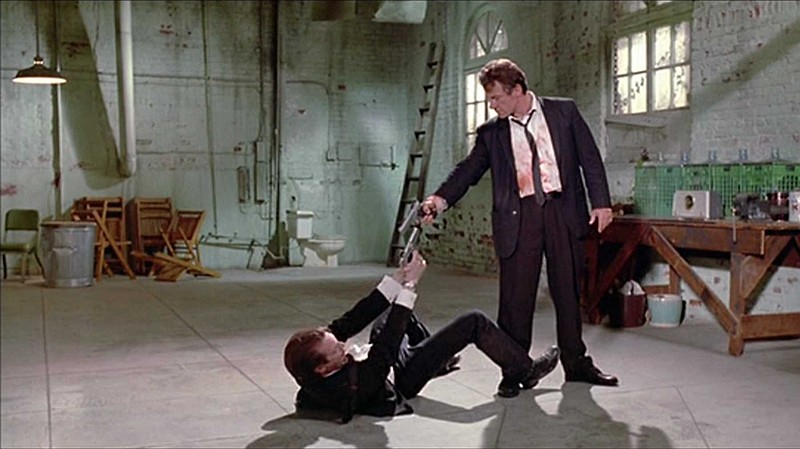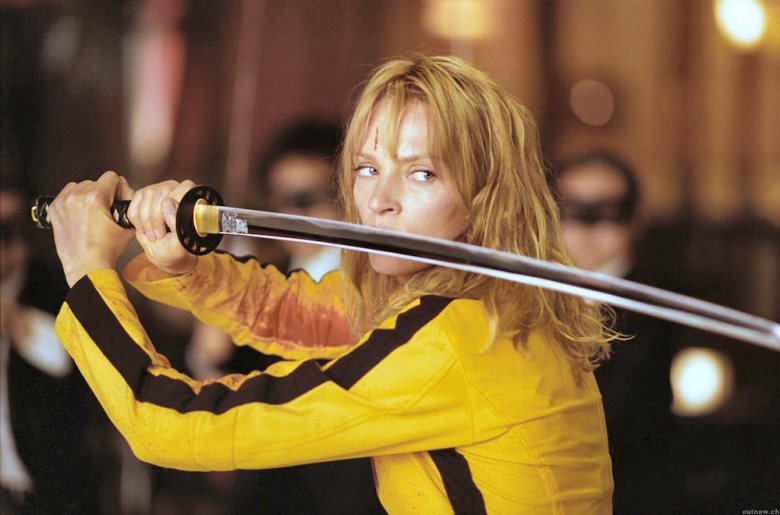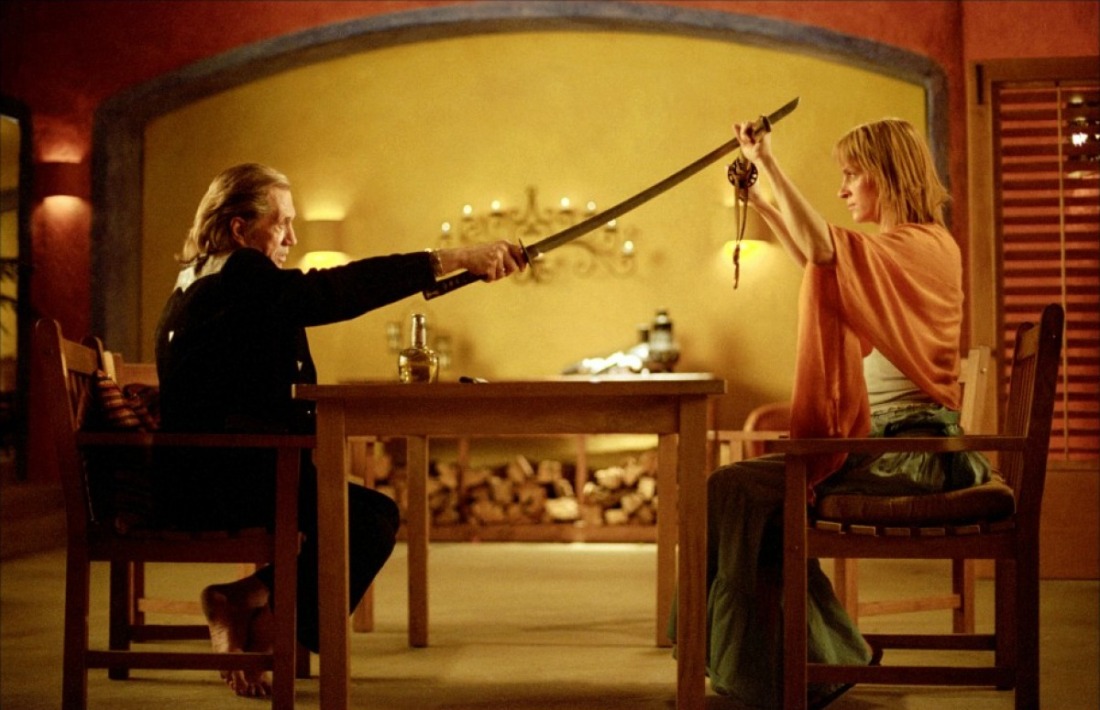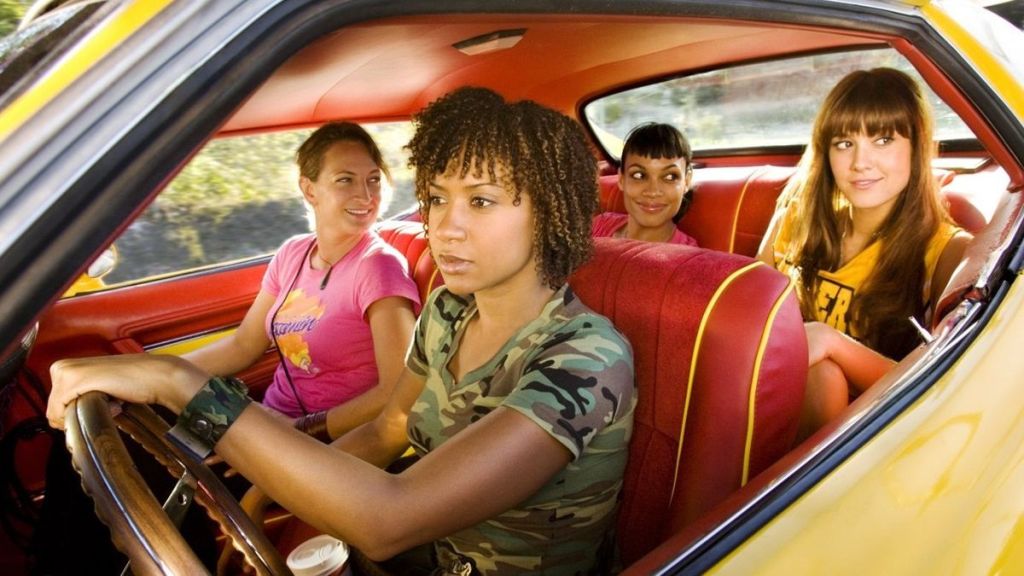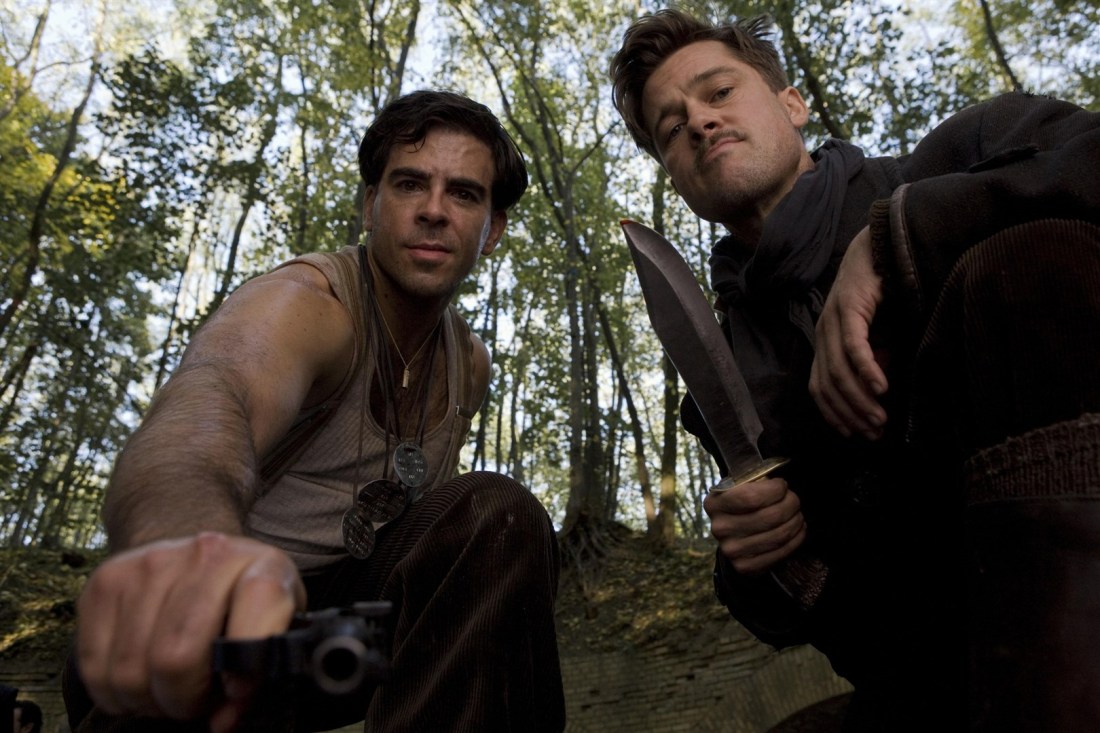Welcome to the second installment of my brand-new directors’ series, in which I examine the past filmography of a well-respected director! Today we’re looking at the OTHER major auteur to come out of the 90’s, Quentin Tarantino himself! Where did the acclaimed (and often controversial) filmmaker get his start? What are his best films? Join me and find out what I think!
Paul Thomas Anderson | Denis Villeneuve
1992: Reservoir Dogs (B+)
Reservoir Dogs is one of the most notorious directorial debuts ever made, as Tarantino exploded onto the scene with a film so balls-to-the-wall, so kinetic and unapologetic in its filmmaking, that the film world was put on notice. Never before had we seen characters this talkative, violence this bloody, plot structure this discombobulated all in one package. While it isn’t his most refined work, it’s possibly the most emblematic of Tarantino’s style and what he seeks to achieve with each of his films. He wants to be a step ahead of the audience at all times, shocking us with the pulpy violence but still caring deeply about our characters’ survival. There are several moments that catch the eye and pop into my head whenever this film crossed my mind – the hallmark of a talented director. Most directors would be lucky to have one film that can put images into my mind instantaneously, but nearly all of Quentin’s films have that ability. Not my favorite Tarantino by a long shot, but still a conglomeration of fascinating techniques he would refine and improve on over the coming years.

1994: Pulp Fiction (A+)
If Reservoir Dogs put Tarantino on the map, Pulp Fiction sent him into the stratosphere. This is easily the best screenplay Tarantino has ever written: not a single scene sags, not a single character is under-developed. The film is constantly throwing us for a loop, moving in directions we didn’t expect, crossing lines we didn’t even realize films hadn’t crossed before. It would be easy for such an complex film to get lost in its own ambition, but Tarantino seamlessly weaves this story into a perfect tapestry, weaving in and out of time but always arriving in a place that makes sense and pays off setups that were established way earlier. It’s the film that inspired countless rip-off attempts, none of which were successful, and proved that Tarantino was a storyteller whose ability with words was truly unmatched. His wordsmith abilities with dialogue, his devotion to films of old that inspired his work, and his incredible and iconic characters make this a film that will be remembered and studied long after Quentin retires.
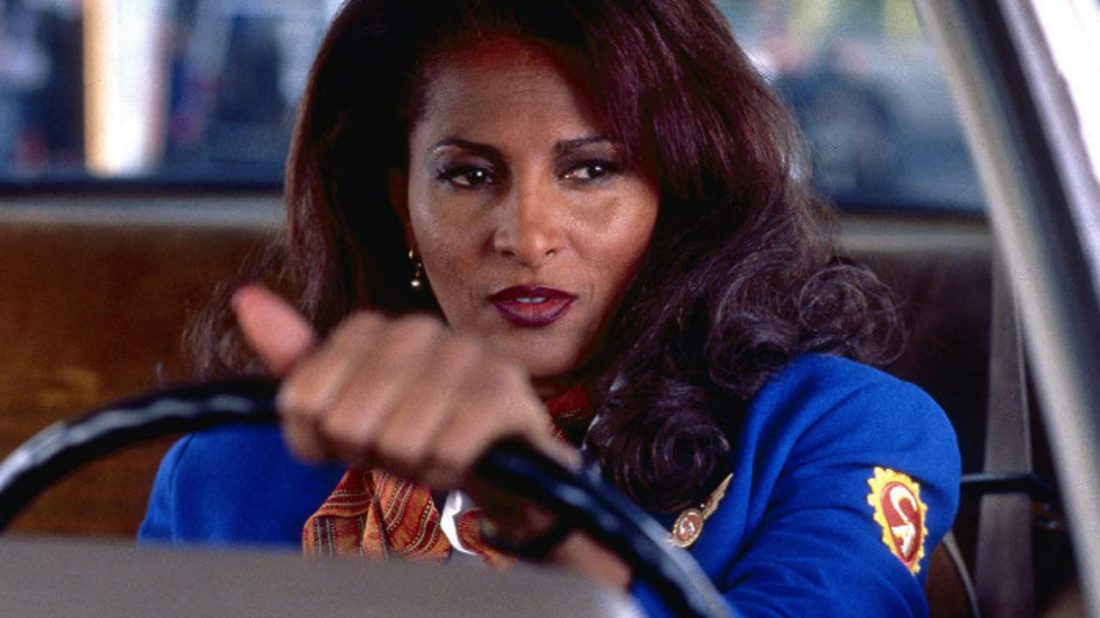
1997: Jackie Brown (A-)
Whenever I hear the complaint that Tarantino does not write strong female characters, I just assume they haven’t delved deep enough into his body of work. Here he begins an incredible run of female-led films: if not as well-known as some of his male characters, at least as complex and interesting to watch. This is the only time Tarantino has adapted a film from a pre-existing story, but he does an excellent job of putting his own spin on it while still doing justice to the source material (and the blaxploitation genre as a whole). This is the least Tarantino-y film he has ever made: he reigns in the over-the-top style and puts the characters first and foremost, letting them drive the story instead of flashy camera work and editing. If you weren’t a fan of Pulp Fiction, this follow-up must’ve been such a breath of fresh air as a more stripped-down example of Quentin’s abilities as a pure storyteller. This is a movie I can see growing on me as I grow older, as Tarantino’s quirks start to irritate me: this film stands apart from his filmography as one of restrained, simple but effective character work.
2003: Kill Bill: Volume 1 (A)
And as if to hammer home Tarantino’s dedication to strong female characters, here we have yet another leading female badass in the Bride. This is easily the most “genre” film Tarantino has ever made, so dedicated to the martial arts that it stands alone as a great work independent of Quentin’s career. The action set pieces are so incredible and over-the-top, they overshadow any minor problems I have with the plot and character work. The Crazy 88 sequence that ends the film is one of my favorite action scenes of all time: nearly half an hour of ridiculous bloody violence, made better by yet more strong character work causing us to root for the Bride on her revenge quest. Some might call it appropriation, but I appreciate Tarantino’s willingness to explore Eastern tradition and bring a dose of that style of storytelling to the West for those unwilling to dive into the films that inspired him (something I myself am guilty of).
2004: Kill Bill: Volume 2 (A-)
The second half of the Bride’s story doesn’t have quite the same incredible set pieces as the first, but it is nonetheless a satisfying conclusion to her character arc. It deepens the lore of the world that Quentin clearly put lots of time and effort into, and this is an example of a film that works way better with the knowledge that there is more to the story than what we’ve been granted access to. He does justice to the genre once again with his reverence of the sword and the hero’s journey that tests the protagonist’s resolve to overcome her weaknesses. It ends on a bit of a whimper instead of the bang that concluded the first half, which was a bit of a letdown for me, but the Bride’s arc as a whole is nonetheless a wild ride that I enjoyed partaking in.
2007: Death Proof (B)
If Jackie Brown is the “least” Tarantino-y Tarantino movie, this is by far the MOST Tarantino-y Tarantino movie. It amplifies all of his best and worst tendencies to the extreme – extended character conversations that do nothing to develop the plot, copious references to old movies and television shows, and an over-the-top visual style that doesn’t skimp on gory violence. Somehow it manages to be the world’s biggest eye-roll and a ton of fucking fun at the same time. I can’t decide if it’s a disaster for the sheer stupidity of the concept, or a masterpiece for the killer climactic sequence that had me giddy with glee. Funny enough, it reminded me a lot of Christopher Nolan’s Tenet, in that the director had a cool set piece idea and just rolled with it even if it made no goddamn sense. I fully understand anyone who despises this film, but it was right up my alley – a fantastic, mindless pulp action-thriller.
2009: Inglourious Basterds (A+)
If we consider Tarantino’s career as a three-act story – where Act I is his kinetic and gritty roots, and Act II is his female-led action phase – Act III is his historical revisionist phase, looking back at significant events in the past and putting his own spin on them. Call it wish fulfillment, call it revenge porn, call it whatever you want, his latest films have all highlighted some horrific incidents or eras in human history and flipped the script on reality. This is a close second favorite of mine behind Pulp Fiction, a clever tale about Nazi Germany that manages to both sympathize us with some truly monstrous people (a hallmark of Tarantino’s work) and completely shatter the allure that such monsters hold over our collective consciousness. The conclusion to this film is one of the most satisfying film endings of all-time, and it’s a testament to incredible character work and plot setup in the preceding 2.5 hours to have us begging for justice. There’s nothing quite like seeing Hitler’s face ripped apart by bullets while a fire ravages the Nazi High Command and dynamite blows everyone to kingdom come. Chock-full of memorable scenes and character interactions, it’s a collection of Tarantino’s best tendencies wrapped up in one package. I adore this film.
2012: Django Unchained (B+)
As if Nazis weren’t evil enough for Quentin, next he tackles the other great atrocity of modern history: American slavery. Here Tarantino returns to glorious form with an over-the-top style that allows us to have fun even as horrible things are happening on-screen. We aren’t supposed to take everything that seriously; the dialogue is campy and ridiculous, the camera work is flashy and imposing, and the violence (as usual) is absurdly bloody and visceral. It transforms its central character (Django) from a meek, mild-mannered slave into a smooth-talking cowboy with a quip for every situation. That style doesn’t always work for me, but Tarantino commits to it so fully that it still works great. Christoph Waltz turns in yet another incredible performance as a multi-faced enigma of a man in Dr. Schultz, who has a great and satisfying arc of his own. Even if Tarantino lingered in the Western genre a bit too long for my taste this decade, this is entertaining from beginning to end and never skips a beat.
2015: The Hateful Eight (C-)
While I wish I could say I adore all of Tarantino’s films, this unfortunately stands apart as one I just did not care for. While I can look back at all of his other films and point to one or two standout moments that pop in my mind, no such moment exists in this one. It’s nearly three hours of characters sitting around in one or two locations chewing scenery. The dialogue and character work is excellent as always, but it doesn’t work as well when it isn’t paired with interesting set pieces. I will say in this film’s favor that it exemplifies Tarantino’s ability to commit to a genre and stick to it no matter what. The immersion and worldbuilding he brings to the table is next to none, even if the direction the story goes didn’t interest me. Maybe I’ll grow to like it on rewatch, and perhaps I’ll check out the miniseries version on Netflix to see if a different story structure helps sell this better.
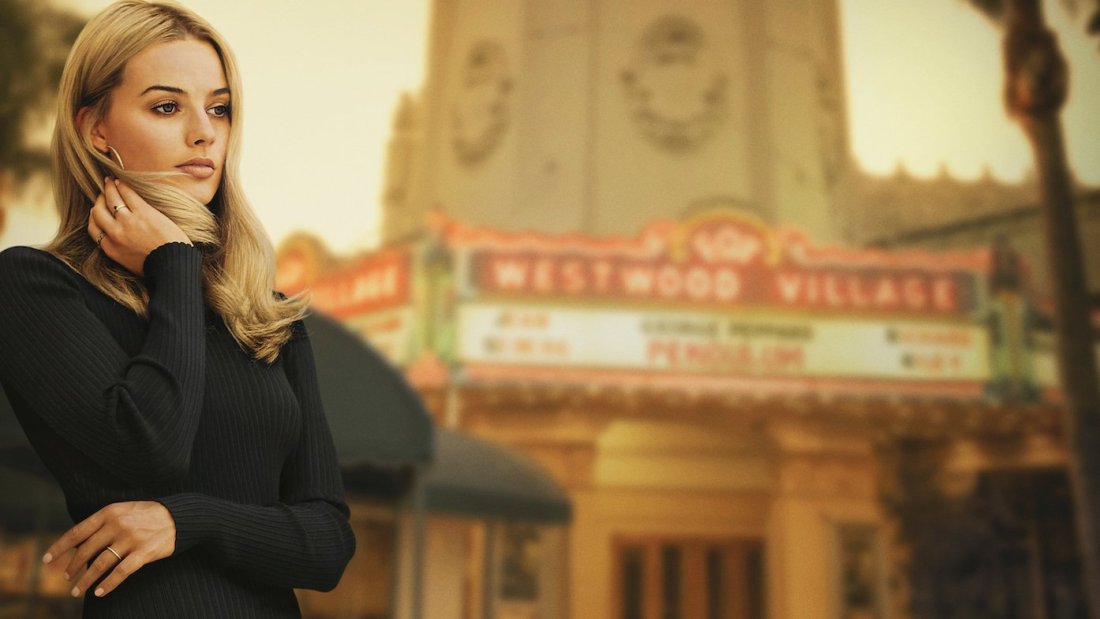
2019: Once Upon a Time in Hollywood (A)
Tarantino’s latest film is (fittingly) his most mature work yet, as much a reflection on his past career as on the Hollywood era of yesteryear. Here his characters are not at the peak of their powers but over the hill, reckoning with their own mortality and trying to find their place in an ever-shifting world. The relationship between Rick Dalton and Cliff Booth is so powerful because they are all the other has, in a world that has largely chewed them up and spit them out. Couple that with the rise of hippie culture and the shadow of Charles Manson looming over the film’s last act, and we have a story ripe with drama despite a plot that takes its sweet time. It’s yet another example of Tarantino’s willingness to show restraint and let the characters drive the action rather than forcing a hands-on style onto the narrative. Like Jackie Brown, I can only see this growing on me more and more as I get used to the slow pace and allow the worldbuilding and phenomenal characters to wash over me. A subtle but nonetheless powerful work that only improves with the knowledge of Tarantino’s past works: a fitting footnote for his filmography (for now).
Quentin Tarantino Ranked:
-
Pulp Fiction
-
Inglourious Basterds
-
Once Upon a Time in Hollywood
-
Kill Bill: Volume 1
-
Jackie Brown
-
Kill Bill: Volume 2
-
Reservoir Dogs
-
Django Unchained
-
Death Proof
-
The Hateful Eight
Conclusion
What is your favorite Tarantino flick? Does his propensity for violence bother you? Let me know below, and tell me who you’d like to see analyzed next! I’m already working on Denis Villeneuve and Alfonso Cuaron for the third and fourth installments, but after that I’d love to hear which filmmakers you want to see! Hope to see you all again soon.
-Austin Daniel
All image rights belong to Miramax, The Weinstein Company, Dimension Films, and Sony Pictures.
